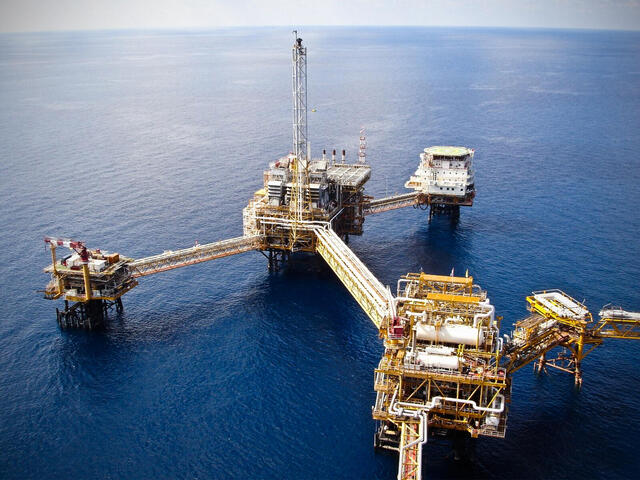
The oil and gas industry is a global sector that involves the exploration, extraction, refining, and distribution of petroleum products, natural gas, and other related hydrocarbons. This industry is also known as the fossil fuel industry, and it plays a vital role in providing energy to the world's economies.
The oil and gas industry can be divided into three main sectors: upstream, midstream, and downstream.
The upstream sector involves exploration for new reserves of oil and gas, drilling wells to extract these resources, and producing them from the ground.
The midstream sector involves the transportation and storage of crude oil and natural gas, as well as the processing of these resources into products that can be transported and sold.
The downstream sector involves the refining of crude oil into various products such as gasoline, diesel, and jet fuel, as well as the distribution and marketing of these products to consumers.
The oil and gas industry is critical to modern society, as it provides the primary energy source for transportation, heating, and electricity generation. However, it also faces challenges related to environmental impact, sustainability, and the transition to renewable energy sources.
There are many materials that are useful in the oil and gas industry. Some of the most commonly used materials include:
Steel: Steel is used for drilling pipes, oil rig platforms, and other components due to its strength, durability, and ability to withstand high temperatures and pressure.
Aluminum: Aluminum is used in the construction of offshore oil rigs due to its light weight and resistance to corrosion.
Carbon fiber: Carbon fiber is used for drilling tools and equipment due to its high strength and low weight.
Copper: Copper is used in electrical wiring and tubing due to its excellent thermal and electrical conductivity.
Titanium: Titanium is used in the construction of oil rigs, pipelines, and other equipment due to its high strength, corrosion resistance, and low density.
Nickel alloys: Nickel alloys are used in the construction of oil and gas pipelines, valves, and fittings due to their high resistance to corrosion and heat.
Polyethylene: Polyethylene is used in pipeline insulation and coatings due to its resistance to corrosion, chemicals, and abrasion.
Overall, the materials used in the oil and gas industry must be able to withstand harsh environments, high pressures and temperatures, and exposure to corrosive chemicals.
There are several metal materials used in the oil and gas industry, including:
Steel: Steel is the most common metal used in the oil and gas industry. It is used for drilling pipes, pipelines, oil rig platforms, and other equipment due to its strength, durability, and ability to withstand high temperatures and pressure.
Aluminum: Aluminum is used in the construction of offshore oil rigs due to its light weight and resistance to corrosion.
Copper: Copper is used in electrical wiring and tubing due to its excellent thermal and electrical conductivity.
Titanium: Titanium is used in the construction of oil rigs, pipelines, and other equipment due to its high strength, corrosion resistance, and low density.
Nickel alloys: Nickel alloys are used in the construction of oil and gas pipelines, valves, and fittings due to their high resistance to corrosion and heat.
Brass: Brass is used in valve components, fittings, and other small components due to its corrosion resistance and ease of machining.
Overall, the metal materials used in the oil and gas industry must be able to withstand harsh environments, high pressures and temperatures, and exposure to corrosive chemicals.
Nickel alloy metals are commonly used in the oil and gas industry due to their excellent resistance to corrosion and heat. Some of the most commonly used nickel alloys in the oil and gas industry include:
Inconel: Inconel is a family of nickel-chromium-based alloys that are known for their high strength and excellent resistance to corrosion and high temperatures. Inconel is often used in the construction of oil and gas pipelines, valves, and fittings.
Monel: Monel is a nickel-copper alloy that is known for its excellent corrosion resistance in seawater and other harsh environments. Monel is often used in offshore oil and gas platforms and equipment.
Hastelloy: Hastelloy is a family of nickel-molybdenum-based alloys that are known for their excellent resistance to corrosion and high temperatures. Hastelloy is often used in the construction of oil and gas processing equipment, such as heat exchangers and reactors.
Alloy 625: Alloy 625 is a nickel-chromium-molybdenum alloy that is known for its excellent resistance to corrosion and high temperatures. Alloy 625 is often used in the construction of oil and gas pipelines and fittings.
Alloy C-276: Alloy C-276 is a nickel-molybdenum-chromium alloy that is known for its excellent resistance to corrosion in a wide range of environments. Alloy C-276 is often used in the construction of oil and gas processing equipment and pipelines.
Overall, nickel alloy metals play a critical role in the oil and gas industry due to their ability to withstand harsh environments and high temperatures.
Contacto: Sino Special Metal Co., Ltd.
Teléfono móvil: 86-19527792928
Correo Electrónico: sales@ssmsteel.com
Whatsapp:86-19527792928
Dirección: Mudu town Jinfeng South Road, Wuzhong District, Suzhou City, Jiangsu Province
We chat
